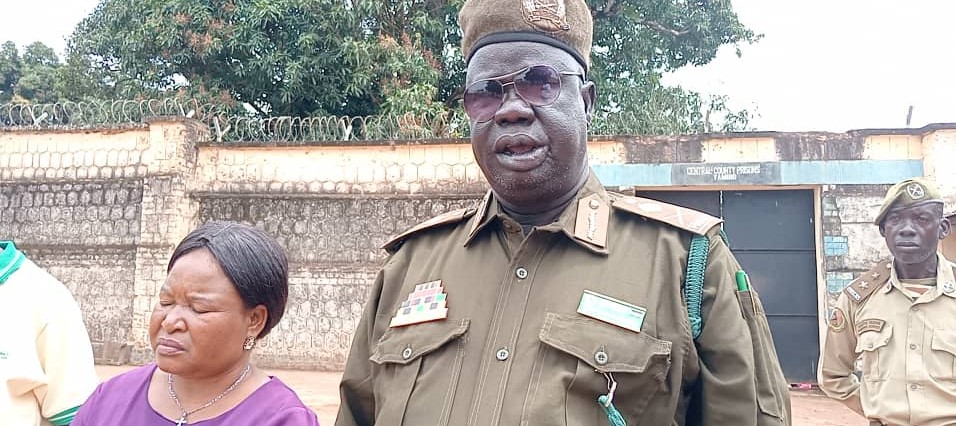State lawmakers in Western Equatoria visited Yambio Central Prison on Friday, urging immediate government action to address what they described as severe overcrowding, critical shortages of food and medicine, and inadequate conditions for inmates with infectious diseases.
The lawmakers, from the state assembly’s gender, child, human rights and humanitarian affairs committee, said their assessment found inmates suffering from malnutrition, sleeping without mosquito nets or mattresses, and lacking access to clean water and essential medication.
Julie John, the committee chairperson, said the visit aimed to evaluate the living conditions and the administration of justice at the facility, locally known as “Freedom Square.”
“We identified a situation of food shortage, lack of medication, water and a lack of a vocational training center,” John told journalists after the visit.
Jenty William Bangafu, the committee’s deputy chairperson, reported that inmates eat only once per day and are housed in poor conditions. She expressed particular alarm over the commingling of inmates with contagious illnesses like HIV, tuberculosis and hepatitis.
“They are supposed to have their rooms separately and have the right to appeal for treatment. They are not supposed to be together in one room with others,” Bangafu said.
The prison’s director, Maj. Gen. Jamal Juma Dahab, confirmed the lawmakers’ findings, listing a lack of food, clean water, medicines, blankets and transport for prisoners as critical needs. He called on state officials to take the prison’s report to the national government to secure support.
Ajak Anyang, the state director for the prison service, said the inmates had directly reported their challenges to the visiting delegation.
Several inmates, who spoke on condition of anonymity for fear of reprisal, said they survive on a single daily meal of cowpeas without dietary variation and lack access to soap and drugs for serious illnesses.
They also described spending entire days idle and appealed for the establishment of a rehabilitation center to provide vocational skills and for reforms to address prolonged pre-trial detention.
Odette Miwai, a local civil society activist, highlighted the health risks posed by the unsanitary conditions.
“This challenge is exacerbated by inadequate sanitation, which is risky,” Miwai said. “Inmates have a right to a good environment. We ask for proper care and for authorities to uphold their responsibilities in accordance with the South Sudan Prison Service Act.”




